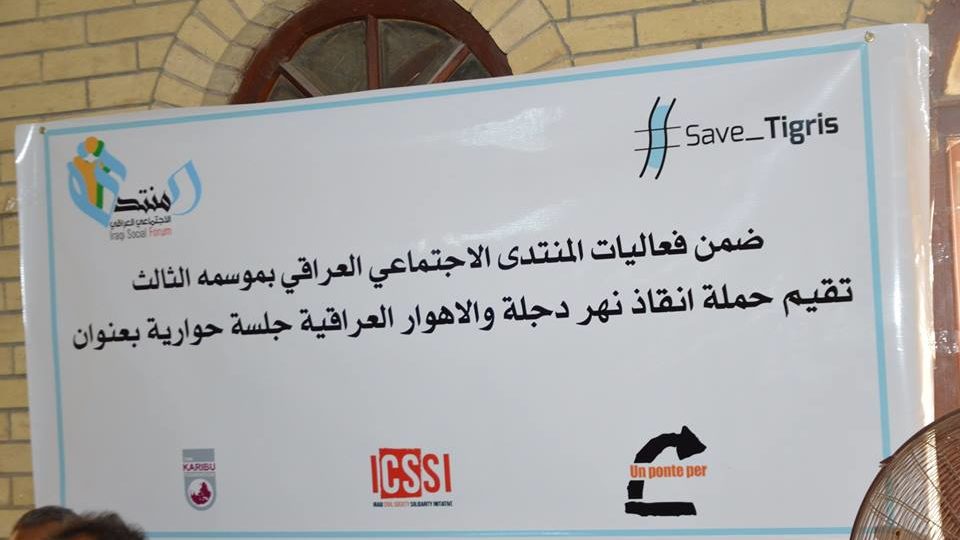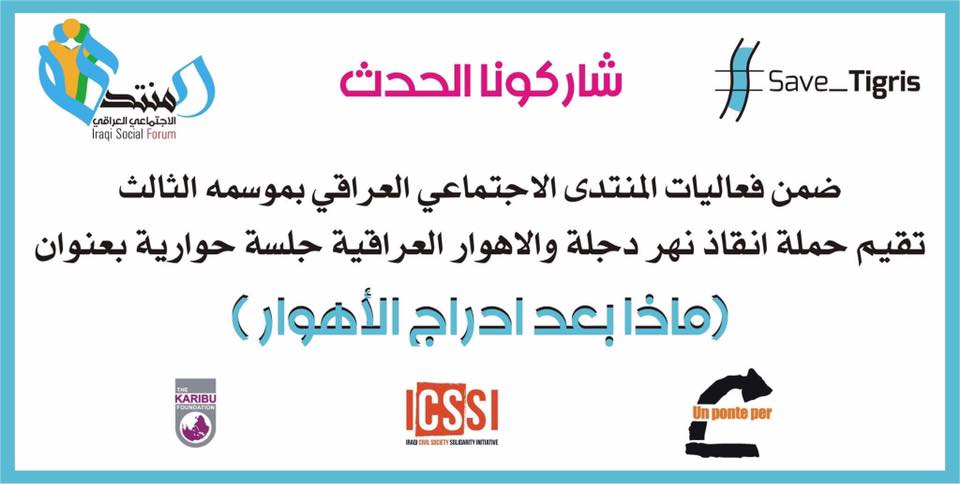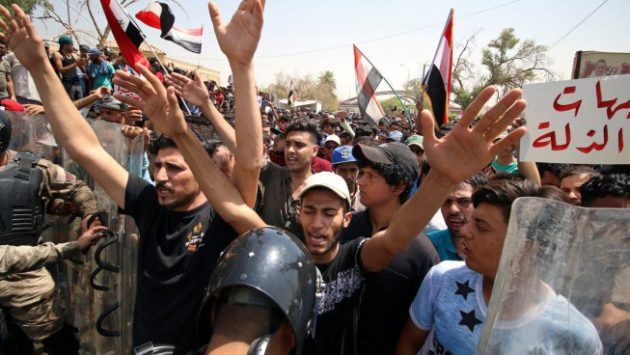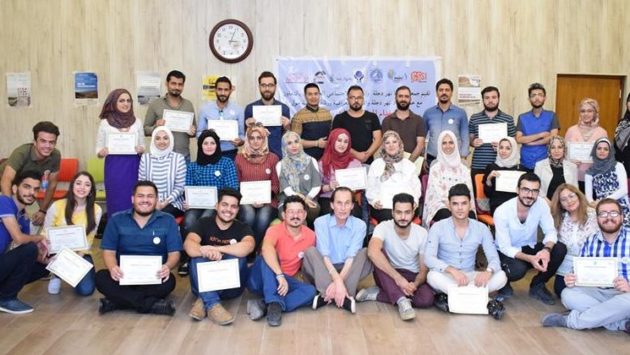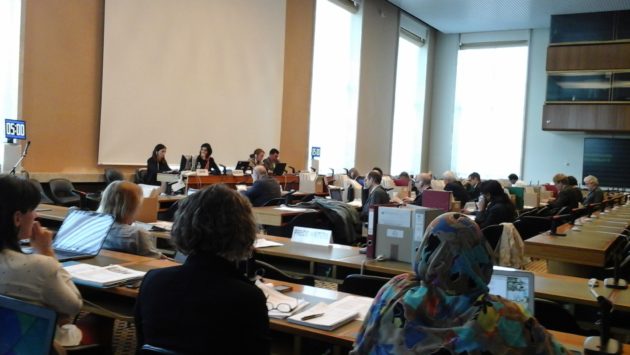Call for collaboration on the implementation of UNESCO recommendations for the Iraqi Marshes!
Statement by the Save the Tigris and Iraqi Marshes Campaign
September 22, 2016
Following the 3rd session of the Iraqi Social Forum in Baghdad
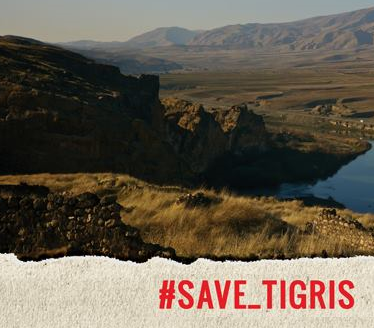
The Save the Tigris and the Iraqi Marshes Campaign congratulates the Iraqi Government and people as well as the office of UNESCO in Iraq on the outstanding achievement of the inscription of the Ahwar of Southern Iraq to the World Heritage List. The inscription is an important step towards the protection of the environmental heritage of the Marshes, and the sustainability of the living environment of the Marsh Arabs.
It is essential that Iraq now meets the recommendations outlined by UNESCO’s decision from the 40th session of the World Heritage Committee in Istanbul in July 2016. Recommendations were made concerning both the natural and cultural heritage of the site, and it is necessary that further follow-up measures be taken in a timely manner as a failure to meet these recommendations might risk the removal of the Ahwar of Southern Iraq from the World Heritage List at the 42nd session of the World Heritage Committee in 2018.
With regards to the Iraqi Marshes, we call upon the Iraqi government:
- To provide a holistic management plan and road map that ensures the sustainable preservation of the Iraqi Marshes. We request the Iraqi government to provide clear information on the measures and processes taken concerning the implementation of a management plan. This plan should involve consultation with both civil society and local communities.
- To complete the legal protection for the Marsh areas, and provide details on how it plans to support the maintenance of the traditional ecological knowledge held by the men and women of the local Marsh Arab communities.
- To conduct a thorough study regarding the minimum water flows needed in order to sustain the Marshes, as requested in the UNESCO decision. We invite the Iraqi government to work together with academics and civil society in order to produce such a study. The sustainable development of the Iraqi marshes and the traditional culture and knowledge of the Marsh Arabs depend on the continued availability of fresh water from the Tigris and Euphrates Rivers. Upstream dams, by restricting the flow of water and polluting the water, put both the environmental and cultural heritage of the Ahwar of Southern Iraq at peril. In this light, Iraq will have to hold a dialogue with Turkey and Iran with regards to the ongoing construction of dams on the Tigris River and its tributaries, particularly Ilisu Dam, which is nearing completion on the Tigris River in Turkey, and Daryan Dam, under construction on the Sirvan River in Iran (known as the Diyala River in Iraq). Impact assessments should clarify the impact of dams and reduced water flows on the Iraqi Marshes. We stress the need for international negotiations for fair shares of water from the Tigris and Euphrates Rivers. Within Iraq, the campaign calls for full and integrated coordination between the Kurdistan Regional Government and the Iraqi Government with regards to the management of their shared water resources, particularly concerning the construction of dams or water facilities on any main river.
We believe civil society and local communities have an integral role to play in the preservation of the environmental and cultural heritage of Mesopotamia, and in particular the Marsh Arabs. In the coming year, the Iraqi government should collaborate with civil society and local communities during the implementation process of the UNESCO recommendations in full transparency.
***
To engage civil society for the cause of the Marshes, the Save the Tigris and Iraqi Marshes Campaign conducted a panel discussion ‘How to followup after the inclusion of the Marshes in the UNESCO World Heritage List’ during the Iraqi Social Forum on September 22, 2016.

